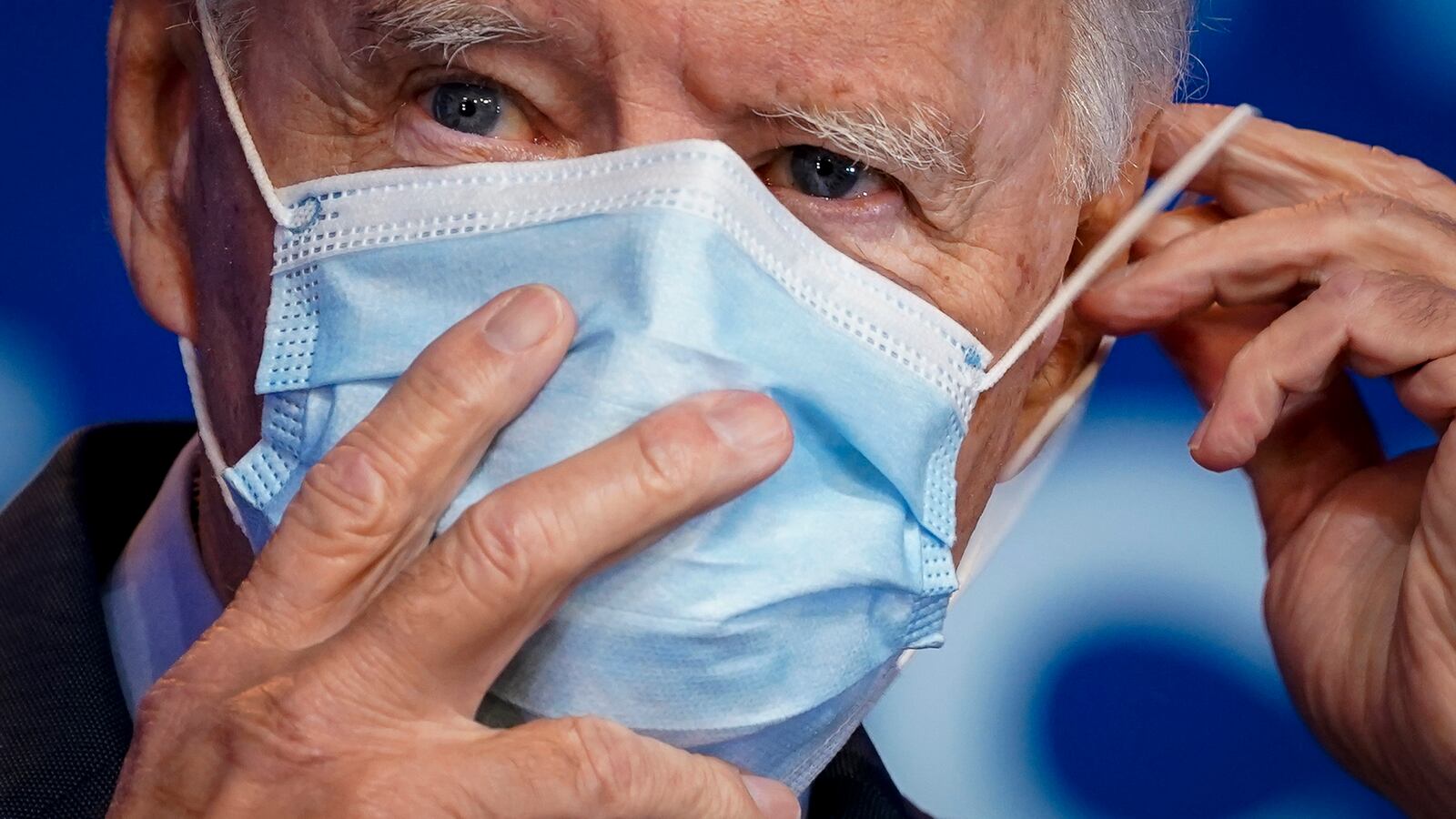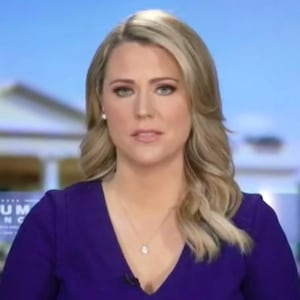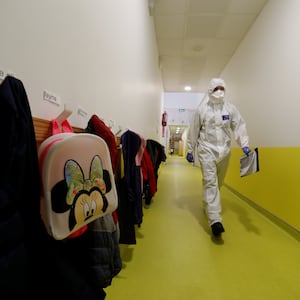Former Vice President Joe Biden has outlined an ambitious agenda for voters as they head to the polls this Tuesday. But if elected, his success will largely be determined by his ability to tackle one issue alone: a virus that has infected millions, killed more than 225,000 people and which could infect as many as 200,00 more people this fall.
In tackling COVID-19, Biden’s team says that the former vice president will enlist top experts, operate off a detailed playbook, and coordinate federal agencies better than President Donald Trump. But, ultimately, the argument within Biden world is that his ability to significantly slow the spread of the virus will depend largely on his ability to regain the trust of Americans, many of whom are fed up with the federal government’s response to the pandemic, or who have adopted the current president’s skepticism of public health measures.
One senior campaign official said the plan for rebuilding trust is rooted, in part, in the belief that Biden’s sheer presence in the White House will put Americans at ease. If Biden himself follows public health guidelines, encircles himself with the nation’s leading experts on infectious diseases and allows health agencies to frequently brief the public on the latest COVID-19 data, the thinking goes, then Americans will follow.
It’s a lofty proposition, especially considering the stakes. Public health experts and Democratic officials believe that Biden’s early execution on COVID-19 could determine not only the future of millions of American lives, but also his ability to pursue a slew of policy objectives that will come down the line: from health care to climate change.
“There are ways to get the virus under control, we just need to act on it. The vice president does genuinely believe that the American people do listen to the president of the United States. And the words of the president matter. I’m not saying that this will all be solved by a president who wears a mask. But I do think it is step one of a solution,” the senior campaign official said. “I think one of the things that the vice president made clear is that he has the full trust of career experts in our scientific agencies. And we need a president who says that and lifts up and empowers our experts.”
Biden’s formal COVID-19 plan includes a long list of goals, including ramping up testing, restoring the White House National Security Council office on biodefense, expanding the CDC’s surveillance programs, providing more resources to frontline workers, working with local officials to implement mask mandates, and invoking the Defense Production Act to produce medical supplies and personal protective equipment. He would ask Dr. Anthony Fauci, the nation’s leading infectious disease expert, to stay on, the campaign official said. It’s unclear if he will keep other task force officials such as Dr. Deborah Birx, the task force coordinator, and Centers for Disease Control Director Robert Redfield.
Biden’s team says the vice president may keep someone like Birx on the ground working with local communities to contain outbreaks, but that he is still unsure how that process would play out. The team says Biden already has a plan to personally coordinate with governors and mayors across the country to ensure the efficient flow of testing and medical supplies. The vice president also has the stated goal of making therapeutics and vaccines affordable.
“He really does believe that in the midst of the virus, it is now more important than ever to make sure that people have access to affordable health insurance,” the campaign official said.
But Biden’s main strategy—though somewhat understated in official readouts from the campaign—is to serve as a real-life example to people that taking public health precautions is not a form of partisan virtue signalling but, rather, common sense. His campaign website includes a nearly 7,000-word outline of his approach to the pandemic. The very first bullet point listed is “restoring trust, credibility, and common purpose.”
While it seems simple in theory, former health officials say it could prove hard to put into practice. Biden will have to completely reverse months of Trump consistently downplaying the virus. Health officials currently working with the coronavirus task force say they’ve all but given up on the idea that they can undo the president’s routine dismissal of public health guidelines.
“There are a lot of things that are going to be hard to fix,” said Tom Frieden, former director for the Centers of Disease Control in the Obama administration. “The politicization of mask wearing, the lack of understanding and public explanation of isolation and quarantine as responsible things to do to protect your family and community… these are all areas where a reset is needed.”
While Biden’s plan for COVID-19 may be premised on lofty objectives, he does have experience managing public health emergencies where public fear and mistrust have presented obstacles. During the 2014 Ebola outbreak in West Africa—the American response to which was managed by Ron Klain, Biden’s former chief of staff, who is now advising him on COVID-19—Biden’s public emphasis on international cooperation was a direct counter to the hysteria that Trump, then a fading reality television personality, was spreading.
“The international order that we painstakingly built after World War II and defended over the past several decades is literally fraying at the seams right now,” Biden said in remarks at the Harvard Institute of Politics in October 2014, one day after Trump tweeted that the United States was hiding the true virulence of the infection from the American people and needed to halt all flights from West Africa. “Take Ebola… a horrific disease that is now a genuine global health emergency. Our Centers for Disease Control, USAID and our military have taken charge of that world epidemic, [and] we are organizing the international response to this largest epidemic in history.”
Those remarks may offer a window into how a President Biden would contend with COVID-19 once in office. But even in the six years since the Ebola crisis faded in America, the world of politics and media and the social fabric that connects them has shifted dramatically.
A pandemic plan that includes the trust of the American people as a prerequisite for success, though not impossible, might underestimate the influence that “plandemic” conspiracy theories—and an agitated former President Trump—could have over people. A Gallup poll released earlier this month found that the number of Americans who said that they are willing to get vaccinated against the coronavirus has fallen to 50 percent, with more growing suspicious as Trump has politicized the possibility of a vaccine being contingent on his re-election.
Additionally, Ebola and COVID-19 are completely different diseases, with the latter having spread globally already and produced a higher death count at home and abroad. Where Biden may benefit, instead, is in the work that scientific researchers will have accomplished up to this point.
If he wins the election, Biden will enter office roughly at a time when scientists predict a COVID-19 vaccine could become available. His ability to control the future spread of the disease will likely hinge on whether Americans trust him and the vaccine process.
“Hundreds of thousands of people have died. And we now have a level of trust about the public health messaging that will really undermine our ability to fully vaccinate where people could get some kind of immunity,” said Kathleen Sebelius, former Health and Human Services Secretary. “My biggest fear is that, by the end of the year, God willing, we will have some safe and effective vaccine, but we’ll have enough people skeptical about it, that they’re just gonna say, no, not gonna happen, not going to take it.”
During a televised town hall event on Oct. 15, Biden semi-committed to supporting a national vaccine mandate once a coronavirus vaccine is discovered, before acknowledging that the president doesn’t have that kind of blanket authority. Instead, the federal government would likely have to come up with some sort of financial incentive to persuade state leaders to agree to the mandating of masking wearing—a template it used to expand the application of seat-belt laws, which were required in exchange for federal dollars for highway-related projects.
But the Biden campaign declined to specify what mechanisms—financial or otherwise—might be used to advance even that straightforward public health measure.
“We need the American people to understand the importance of wearing a mask and take it upon themselves, even if they don’t live in a state or a city with a… mandate,” the senior campaign official told The Daily Beast.
Medical experts also told The Daily Beast that there is no historical blueprint for any kind of vaccination mandate—nor for dealing with the high percentage of Americans who express open hostility to mandatory vaccines for any illness, even beyond COVID-19.
“There are mandates for childhood vaccinations, based on school entry and things of this sort, but for adult vaccination—which this is mainly going to be—we have little or no experience,” said Dr. Arnold Monto, professor of epidemiology at the University of Michigan School of Public Health. “There’s very little precedent that I know to mandate vaccines for adults, and my concern is this kind of mandate, if there is lack of public confidence in the approval process, may backfire.”
A senior Biden campaign official told The Daily Beast that while a president is not empowered with the ability to mandate vaccinations for all adults across the country, he does have the ability to “influence and persuade” both state officials and the American people.









